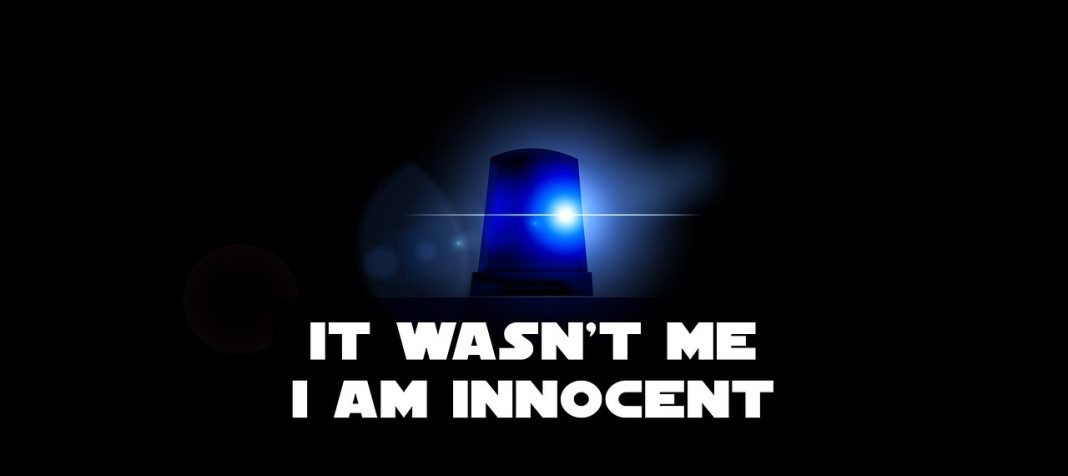
What is Our Conscience?
Our previous post was entitled “What is Our Conscience and Why is it Critically Important For Believers To Understand it?” Now we look at how our conscience works in helping to bring us to righteousness.
Definition
Dictionary.com defines “conscience” as:
noun 1. the inner sense of what is right or wrong in one’s conduct or motives, impelling one toward right action: to follow the dictates of conscience. 2. the complex of ethical and moral principles that controls or inhibits the actions or thoughts of an individual. 3. an inhibiting sense of what is prudent: I’d eat another piece of pie but my conscience would bother me.
It is very important that we understand our conscience and how it works as a foundation to this post. If you have not yet read it, please read it now and get back to this.
In this post, I would like to show how our consciences enable us to keep the law without being under the law. In other words, our consciences allow us to keep the law without keeping it. Confused? Let’s unravel the mystery.
Paul’s Writings Are Hard To Understand
The writings of the Apostle Sha’ul (Paul) are really hard to understand (2 Peter 3:15-16). It can surely throw us into confusion. Indeed, this is what has happened with his writings on the law (Torah). A large chunk of Christianity has interpreted his writings to mean the law is “done away with.” 
Points to Consider
First of all, there are certain points we need to bear in mind.
- We are in a new covenant through faith in Yahushua, not the old covenant given at Sinai.
- In our covenant, we cannot obey the law to the letter, otherwise we go back under the law.
- On the other hand, we cannot disobey the law or we sin (1 John 3:4).
So even though we are in a new covenant, we are in quite a quandary. We still have to ensure we don’t transgress the old covenant (1 John 3:4).
1 John 3:4 Whosoever committeth sin transgresseth also the law: for sin is the transgression of the law.
How do we do this without going back under the law? How do we avoid transgressing (breaking) the law without going back under the law? Is it even possible? This is what we aim to show through this post.
What Purpose Does The Law Serve?
We start the quest on how to obey the law without going back under the law by looking at the purpose the law serves for our covenant.
Rom 3:20 Therefore by the deeds of the law there shall no flesh be justified in his sight: for by the law is the knowledge of sin.
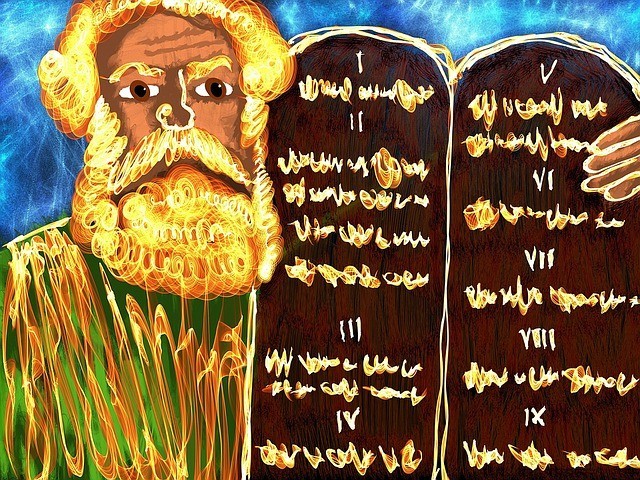
Our Consciences Holds us to the Highest Standard We Know
Now we can see the importance of knowing what sin is when we understand that our conscience holds us to the highest standard it knows. A good conscience will accuse us if we fail to attain the highest standard and excuse us if we attain that highest standard. This process of accusing and excusing is what allows us to overcome sin.
Rom 2:13 For not the hearers of the law are just before Elohim, but the doers of the law shall be justified. Rom 2:14 — Rom 2:15 For when the Gentiles, which have not the law, do by nature the things contained in the law, these, having not the law, are a law unto themselves: Which shew the work of the law written in their hearts, their conscience also bearing witness, and their thoughts the mean while accusing or else excusing one another; )
Obedience Without the Law
Notice here, the law is not necessary for this process to work and here is why. Shau’l was referring to Gentiles who had no idea of YHWH’S laws.
Indeed, they did not reject his laws, they just had no knowledge of it. By nature they obeyed in their ignorance. These are they if they had known the truth, they would have walked in obedience. 
Rom 2:21 Thou therefore which teachest another, teachest thou not thyself? thou that preachest a man should not steal, dost thou steal? Rom 2:22 Thou that sayest a man should not commit adultery, dost thou commit adultery? thou that abhorrest idols, dost thou commit sacrilege?
We already know the commands, so for us not to do them, it means we are disobeying the law, and:
Rom 2:12 For as many as have sinned without law shall also perish without law: and as many as have sinned in the law shall be judged by the law; Rom 2:13 For not the hearers of the law are just before Elohim, but the doers of the law shall be justified.
NB.Very important note on verse 13. The law does not justify us, but the doers of the law shall be justified. Again it seems as if Sha’ul is contradicting himself when compared with this verse:
Gal_3:11 But that no man is justified by the law in the sight of Elohim, it is evident: for, The just shall live by faith.
On the contrary, what he means is what this post is all about: now that we are justified by faith in Yahushua, we must obey the law, not to the letter of course, but the spirit of the law. Otherwise, we are transgressors (1 John 3:4). In effect, it is faith first, then obedience.
So because we have the Bible, we know the commandments/laws, so we fall in the latter batch (of Romans 2:12), which is those who have sinned in the law. We cannot claim to be Gentiles who “do not have the law!”
The Law Is the Standard for Our Consciences
So for us, because our conscience holds us to the highest standard, the law becomes the standard. Why? The Law shows us what sin is. It is the law which tells us we should not covet, murder, worship idols, and so on.
The commands become the standard for us to overcome and good consciences will hold us to these standards. If we do not fully know what sin is, we will not be able to accuse or excuse ourselves so as to overcome it.
Therefore, a good conscience of a believer today must have full knowledge of what is right and what is wrong: he must have full knowledge of the law. For us, it is like that which is said in the civilian world, “ignorance of the law is no excuse.” It is implied that we must know the laws of the land. 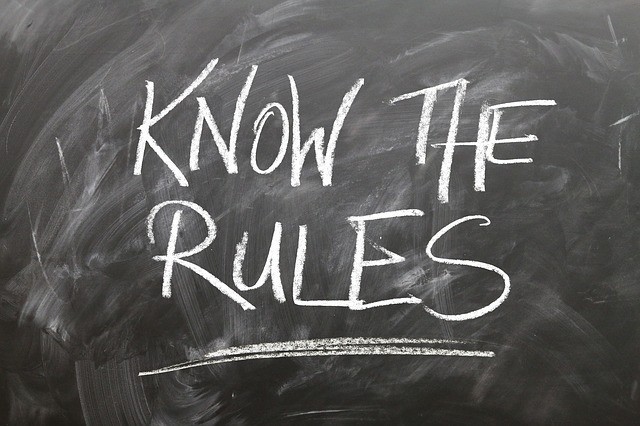
Galatians 3:24 Wherefore the law was our schoolmaster to bring us unto Mashiach, that we might be justified by faith.
So the law is like a high jump bar for our conscience. It sets a standard that we must attain. 
No Law Means No Standard for Our Conscience to Operate
By the way, an understanding of this shows the fallacy and the spiritual suicide that Christians commit when they say the law is done away with. 
That is because we cannot overcome what we don’t know. How can we jump over a high jump bar that is there, but because we are blindfolded, we cannot see it? Let us now move on to a prophecy that we need to understand:
THE LAW WRITTEN IN OUR HEARTS
Jeremiah 31:33 But this shall be the covenant that I will make with the house of Israel; After those days, saith YHWH, I will put my law in their inward parts, and write it in their hearts; and will be their Elohiym, and they shall be my people.
Confirmed in our new covenant:
Heb 10:15 Whereof the Holy Spirit also is a witness to us: for after that he had said before, Heb 10:16 This is the covenant that I will make with them after those days, saith Yahweh, I will put my laws into their hearts, and in their minds will I write them;
The Law written on our hearts means we instinctively obey the law through the Holy Spirit without having to obey the law to the letter (literally). Why?
Rom 7:14 For we know that the law is spiritual: but I am carnal, sold under sin.
We are in the new covenant, which is a spiritual covenant. In this covenant, our hearts are circumcised through faith in Yahushua HaMashiach.
This gives us the ability to obey the spirit of the law. By obeying the spirit of the law, we are able to overcome our carnal, sinful tendencies. The Messiah referred to the spiritual aspects of the law as the weightier matters of the law:
Mat 23:23 Woe unto you, scribes and Pharisees, hypocrites! for ye pay tithe of mint and anise and cummin, and have omitted the weightier matters of the law, judgment, mercy, and faith: these ought ye to have done, and not to leave the other undone.
Obeying the Law through the Spirit
Rom 2:29 But he is a Jew, which is one inwardly; and circumcision is that of the heart, in the spirit, and not in the letter; whose praise is not of men, but of Elohiym. Rom 7:6 But now we are delivered from the law, that being dead wherein we were held; that we should serve in newness of spirit, and not in the oldness of the letter.
So now we see that in newness of spirit, we can be led by Ruach HaKodesh (the Holy Spirit) into obedience.
Gal 5:18 But if ye be led of the Spirit, ye are not under the law.
As long as we are led by the Spirit into obedience to the law, we are not under the law.
What Does It Mean To Spiritually Interpret the Law?
But what does it mean to spiritually interpret the law? How can we take what was given on Sinai and spiritualize it? What gives us the right to do so?
1Co 2:9 But as it is written, Eye hath not seen, nor ear heard, neither have entered into the heart of man, the things which Elohim hath prepared for them that love him.
1Co 2:10 But Elohim hath revealed them unto us by his Spirit: for the Spirit searcheth all things, yea, the deep things of Elohim. 1
Co 2:11 For what man knoweth the things of a man, save the spirit of man which is in him? even so the things of Elohim knoweth no man, but the Spirit of Elohim.
1Co 2:12 Now we have received, not the spirit of the world, but the spirit which is of Elohim; that we might know the things that are freely given to us of Elohim.
1Co 2:13 Which things also we speak, not in the words which man’s wisdom teacheth, but which the Holy Spirit teacheth; comparing spiritual things with spiritual.
1Co 2:14 But the natural man receiveth not the things of the Spirit of Elohim: for they are foolishness unto him: neither can he know them, because they are spiritually discerned. 1
Co 2:15 But he that is spiritual judgeth all things, yet he himself is judged of no man.
1Co 2:16 For who hath known the mind of Yahweh, that he may instruct him? But we have the mind of the Messiah.
The Almighty Father gives us understanding through his Spirit. The natural man cannot understand these things, which is why we have so much rebellion against his word.
Sadly, most of us who say we are believers are not led by his Spirit and do not freely receive spiritual understanding through his Spirit. The spiritual man can spiritually interpret the words of the law.
Before We Can Spiritually Interpret the Law, We Must Know and Understand the Law
So for the spiritual man, the spiritual interpretation of the law becomes the standard for his conscience. But he must first study and understand the law before he can spiritually interpret the law!
Remember, YHWH said: “if you seek me you shall find me, if you seek me with all your heart” (Jeremiah 29:13) and “my people are destroyed for lack of knowledge” (Hosea 4:6) and “study to show yourself approved…rightly dividing the word of truth” (2 Tim 2:15).
Our Consciences and the Law: the Process
But where do our consciences come into all this? How does the process work?
1Pe 3:21 The like figure whereunto even baptism doth also now save us (not the putting away of the filth of the flesh, but the answer of a good conscience toward YHWH,) by the resurrection of Yahushua HaMashiach:
Faith in Yahushua supernaturally purges our conscience transforming it from an evil conscience to a good conscience. In so doing, we can now understand the spirit of the law, and then our good consciences will then be able to accuse us and excuse us. Confirmation.
Heb 9:13 — Heb 9:14 For if the blood of bulls and of goats, and the ashes of an heifer sprinkling the unclean, sanctifieth to the purifying of the flesh: How much more shall the blood of Mashiach, who through the eternal Spirit offered himself without spot to YHWH, purge your conscience from dead works to serve the living Elohiym?
So with a purged conscience, one is now able to obey. But first we have to have a righteous standard.
Rom 8:4 That the righteousness of the law might be fulfilled in us, who walk not after the flesh, but after the Spirit. Rom 8:5 For they that are after the flesh do mind the things of the flesh; but they that are after the Spirit the things of the Spirit.
The Standards of Man vs The Standards of YHWH
We can have a corrupted conscience (1 Tim 4:2) or an evil conscience (Heb 10:22). This happens when man finds his own way, which brings me to the next point: Only the most High can set the standards. Of course, he spoke to us in the old testament through the prophets and now speaks to us through his Son (Heb 1:1-2). The Son then passed the baton to the Apostles (Mat 28:19) to interpret even further. 
Deu_12:32 What thing soever I command you, observe to do it: thou shalt not add thereto, nor diminish from it.
Any tradition of man is therefore self-righteousness. So because the standard can only come from the most High, we have to obey his standard, which is his law. I must emphasize again, not to the letter, but in the Spirit, for the letter kills, but the Spirit gives life.
2Co 3:5 Not that we are sufficient of ourselves to think any thing as of ourselves; but our sufficiency is of Elohim; 2Co 3:6 Who also hath made us able ministers of the new testament; not of the letter, but of the spirit: for the letter killeth, but the spirit giveth life.
What Happens To Those Who Reject Torah (the Law)
Here is what happens to unbelievers or the rebellious who don’t know or understand what we are saying here and inevitably reject Torah (the law):
- They either totally reject the law or interpret it to the letter (see Case Study #1 below).
- Therefore they have no understanding of the spirit of the law (letter killeth but spirit gives life).
- They end up disobeying the law.
- Finally, they sin repetitively as they continuously repeat the process.
Sadly, this is what happens to most Christians today. 
CASE STUDIES
To summarize, we have spoken about obedience to the spirit of the law through the leading of the Holy Spirit. This circumcises our hearts so the laws are written in our hearts.
Our lively consciences, purged through the blood of Yahushua HaMashiach convict us as to what is right from what is wrong. So let us look at some case studies of this in action so we can look at its practical applications.
CASE STUDY #1
How do we obey this law in the New covenant?
Deuteronomy 14:22 Thou shalt truly tithe all the increase of thy seed, that the field bringeth forth year by year.
It has been often said that this was referring only to farming so in our new covenant, it is not relevant. That response is of someone trying to obey the law to the letter: in other words, going back under the law! 
Good Conscience
On the other hand, with knowledge of the law and a good conscience, the true believer would understand that the seed and the field is actually spiritually referring to anything we have that gives a return.
His conscience would let him obey the weightier matters of the law. He would know that tithing is giving, it is of faith, mercy, love and sacrifice. His conscience would tell him that YHWH claimed the tenth as his so he has no ownership of that one tenth. He would gladly tithe knowing that it is the will of the Father.
Leviticus 27:30 And all the tithe of the land, whether of the seed of the land, or of the fruit of the tree, is YHWH’S: it is holy unto YHWH.
CASE STUDY #2
Lev 23:1 — Lev 23:2 And YHWH spake unto Mosheh, saying, Speak unto the children of Israel, and say unto them, Concerning the FEASTS OF YHWH, which ye shall proclaim to be holy convocations, even THESE ARE MY FEASTS.
Now the evil conscience will say, that is done away with (even though the Messiah and Apostles kept them). Like-minded (un)believers have replaced YHWH’S feasts with new feasts (that are not commanded in the Bible).
The evil conscience rejects YHWH’S feasts and therefore is in rebellion against YHWH and sins. The good conscience says YHWH claims them as HIS FEASTS, therefore I have no say in the matter.
The good conscience will look at the choices available which proves to his conscience that he made the right decision.
He will look at the Christian feasts of pagan origin that honour the very false gods that plagued Israel in the Bible. These include Christmas Day, Easter, Lent, Ash Wednesday, Mother’s Day, even Valentine’s Day. These feasts honour Ba’al and the Queen of Heaven under various names and disguises.
The good conscience flees from any feast that even partially honours these false “gods.” 

CASE STUDY #3
Exodus 20:8 Remember the sabbath day, to keep it holy.

They deliberately forget that it is the only day of the week that the Most High gave a name, and the only one that he sanctified (made qodesh/holy).
The evil conscience rejects the fact that it was the Messiah’s tradition as well as the Apostles. He or she rejects the fact that we were never told that the 4th commandment was removed and replaced.
The Good Conscience
The good conscience cannot accept a pagan day of worship.
That good conscience would have studied history in order to find truth so his conscience can be clear. He would know that it was changed by man who did it because he claimed he had the authority to do so.
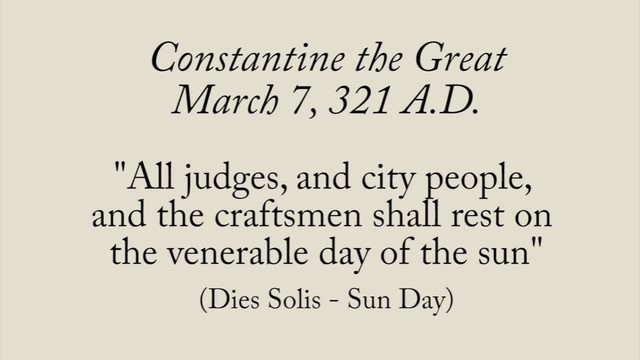
He does not want to feel guilty as his thoughts would accuse him of walking in error. Take a look as I show where in the New Testament it explicitly tells us we must keep the Sabbath in our new covenant.
CONCLUSION
Ecclesiastes 12:13 Let us hear the conclusion of the whole matter: Fear YHWH, and keep his commandments: for this is the whole duty of man.
We do this with a good conscience purged by the blood of Messiah. Abiding in Messiah (John 15:4) will give us a good conscience.
The Law will become our standard of righteousness, which our good conscience will enable us to spiritually interpret. With that standard set, our thoughts will both accuse and excuse us into obedience to the spirit of the law.
Hence, we will walk in obedience to the law, thereby not sinning. In effect, we will be keeping the law without actually keeping the law.
If we are walking in disobedience to the law; if we are not walking in obedience to the spirit of the law, we need to have our consciences purged. There is only one source of purging and that is Yahushua HaMashiach. Here is the recipe he gave us.
Mat 16:24 Then said Yah’shua unto his disciples, If any man will come after me, let him deny himself, and take up his stake, and follow me.
If we are walking in disobedience, chances are, our sinful nature is in the way. Deny yourself, pick up your stake and follow Yahushua. Got it?
This is what Apostle Sha’ul means in his writings on the law.
Related: What is Our Conscience and Why is it Critically
Important For Believers To Understand it?
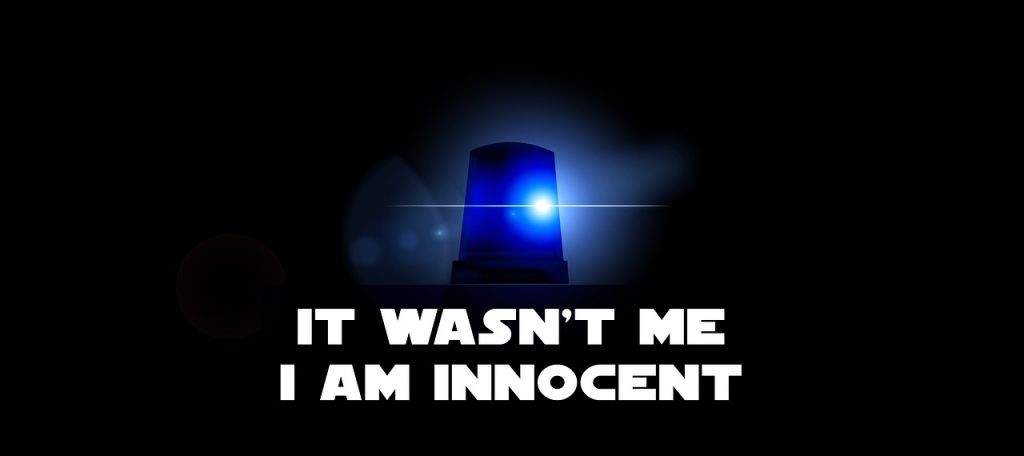







Extremely enlightening. I appreciate how you broke it down. Thanks
You’re welcome, Bernadette. Praise YHWH!
This was so helpful to have the case studies. I appreciate the contrast between the response of those who have a good conscience, purged by Yahusha, and those with an evil conscience. The side by side comparison made this so clear.